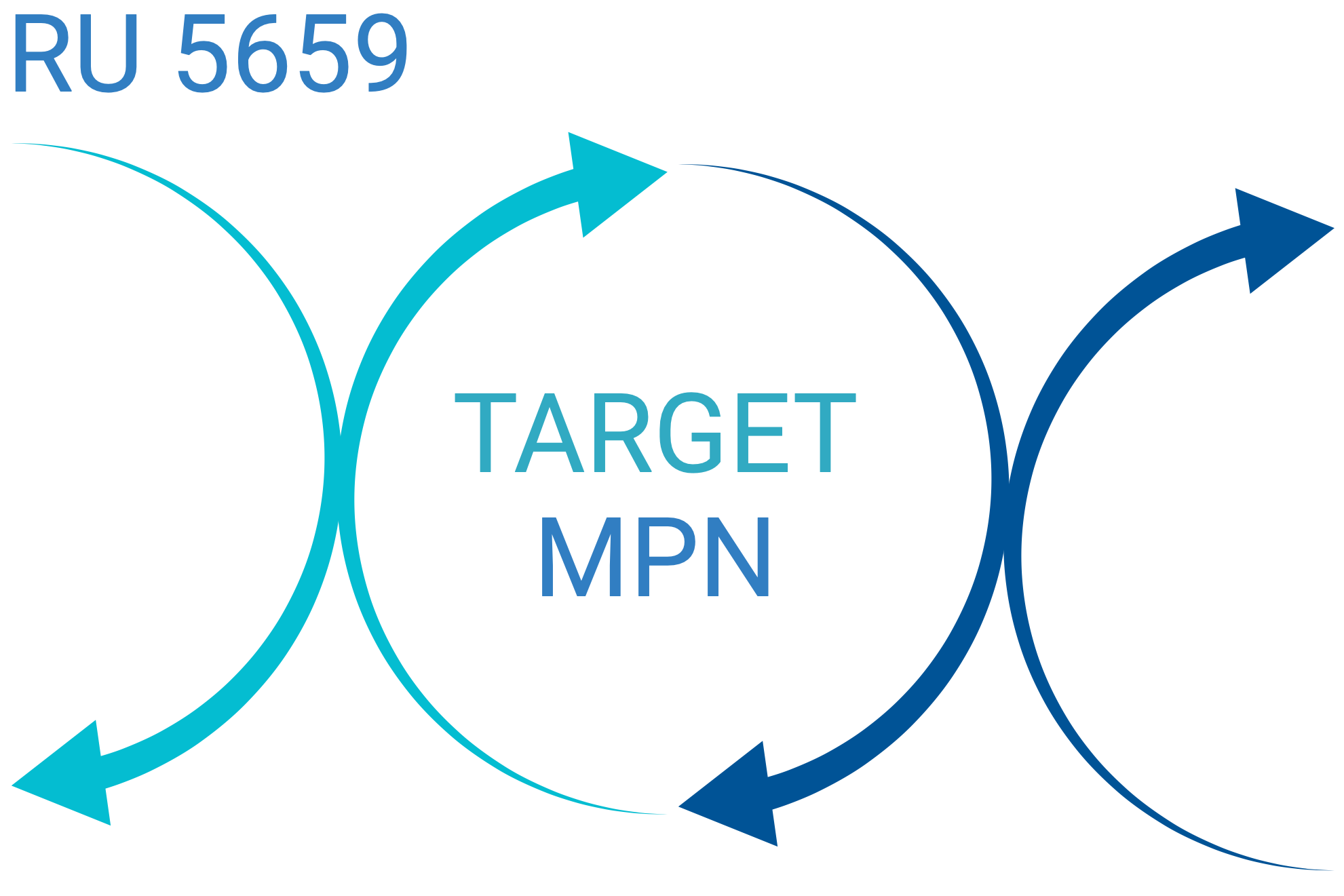Targeting aberrant chromatin states during disease persistence and progression in MPN
Dysregulation of epigenetic processes can contribute to the development and progression of cancer, including MPNs. Of note, genes coding for different epigenetic modifiers are among the most frequently mutated somatic lesions in myeloid malignancies. However, the precise mechanisms through which these genetic alterations influence chromatin state, gene expression, and cell fate decisions remain largely unknown to date. This applies particularly to MPN, where very heterogenous populations of cells from different lineages are affected by the presence of the pathogenic mutations shaping epigenetic control, thereby impacting adhesion, migration, cytokine, and chemokine secretion as well as immunogenicity.
We and others have shown that leukemic progression is associated with increasing genetic complexity and clonal diversification. However, current knowledge is limited by the small number of MPN patients investigated using high-resolution single-cell technologies. We will combine the power of single-cell and bulk sequencing approaches leveraging the high horizontal resolution of whole-genome sequencing data together with deep vertical analysis of clonal composition in single-cell approaches at serial time points during the clinical course. This approach will unravel the full picture of intra-tumoral heterogeneity on a genome-wide scale for both large-scale and small-scale genetic aberrations.
This will give us the unique opportunity to create a roadmap of the clonal architecture and lineage relationships in each individual patient sample and we will assess chromatin accessibility and gene expression in sorted peripheral blood cell populations (HSPCs, Neutrophils, Monocytes, CD4+ T-cells, CD8+ T-cells, B-cells and NK-cells). Overall, this dataset will allow us to define specific signatures which are associated with clonal expansion. Furthermore, we will aim to define cell-type specific molecular programs that are associated with disease progression independent of the somatic mutations present in these cells.
We hypothesize that genetic and non-genetic factors such as an aberrant chromatin state alter differentiation programs and promotes clonal diversification in MPN patients during disease progression. Furthermore, we speculate that treatment with potent and selective inhibitors of chromatin binding proteins can reverse these chromatin signatures in a genotype selective manner and target pathogenic clones in xenograft models of MPN. We will therefore address the following aims in this project:
To reconstruct lineage architecture and clonal heterogeneity in high-risk MPN.
To define lineage-specific transcriptional signatures and chromatin accessibility patterns during disease progression in MPN.



